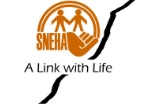SPIRIT implements and evaluates an integrated, evidence-based suicide prevention intervention at scale in rural communities.
Why SPIRIT?
Suicide is a major social and public health concern in South Asia. There is a high suicide rate among young people in India, and self-poisoning using pesticides is one of the commonest means of suicide in India and Bangladesh.
While many specific suicide prevention interventions have been found to be effective in research studies, these have either not been translated into meaningful care outcomes or been implemented together as a package in communities, at scale.
The Suicide Prevention & Implementation Research IniTiative (SPIRIT) seeks to address this gap through a scale-up study and capacity building.
How are we addressing the issue?
1. Scale-up study
The SPIRIT study uses mixed methods to evaluate the implementation, effectiveness and costs of an integrated suicide prevention programme consisting of three integrated interventions. The interventions are across public health, education, and agriculture sectors, which include:
-
- Train youth using ‘Youth Aware of Mental Health Program’ (YAM) for adolescents (14 -16 years) to increase awareness of mental health, develop coping strategies, and encourage support-seeking behaviour
- Provide access to community storage facilities for farming households to safely store their pesticides
- Train community health workers to identify, assess, support, and refer persons who are at risk of self-harm and suicide in the community
To obtain a reliable estimate of suicide deaths and suicide attempts in Gujarat, the study has designed and implemented a suicide surveillance system to collect real time data on suicides and attempted suicides from community-based key informants and official sources (police and hospitals).
The World Health Organization (WHO) has recently adopted this surveillance system and published a training manual based on the material developed by SPIRIT. Download, here.
The system aims to enhance the ability of fieldworkers and supervisors to gather and manage data on suicide and self-harm in communities. It utilises information from key informants, healthcare facilities, and police records. It provides guidance and equips professionals with the necessary skills to effectively collect and analyse data in order to gain a better understanding of these complex issues.
The adoption of this system is a significant achievement as it contributes to strengthening the surveillance of suicide and self-harm in communities, especially in low- and middle-income countries (LMICs) and in areas where civil registration and vital statistics (CRVS) systems are inadequate or non-existent.
2. Capacity building
- SPIRIT’s Fellowship Programme for early-mid career researchers and health care professionals to increase their knowledge and skills in implementation science, particularly in mental health.
- We also work with policymakers to enable evidence-informed policies for suicide prevention
- We work with media professionals to promote responsible reporting on suicides.
- We aim to work with community members involved in the intervention to understand implementation research participation and for long-term sustainability.
What is the potential impact?
The overall aim of the study is reduction in deaths due to suicides and attempted suicides.
By using an integrated, inter-sectoral, evidence-based approach, the study aims to:
- Improve mental health awareness amongst adolescent youth in the intervention schools
- Reduce suicide deaths due to organophosphate poisoning in the intervention villages in comparison to the control group
- Strengthen identification and referral pathways for those at risk of suicide in the intervention villages
The study will lead to a greater understanding of the factors that influence the implementation of generalisable, evidence-based interventions for suicide prevention in community settings.
It will also improve our knowledge of the key components for scaling up such interventions.
Through its capacity building initiatives, the study aims to:
- Improve regional capacity for implementation research
- Build an understanding of implementation research and evidence-based practice for suicide prevention amongst policymakers, media professionals, and other relevant stakeholders
- Equip communities with the skills needed to participate in large implementation research studies and document their narratives of change
Where have we reached?
Scale up
SPIRIT has undertaken activities in 116 villages in Mehsana, Gujarat.
- Access to community storage facilities: Currently SPIRIT provides access to safe storage of pesticides to 1,56,468 people from the community.
- Youth Aware of Mental Health (YAM) Sessions: SPIRIT has reached out to 3000 students from 9th standard for ‘Youth Aware of Mental Health’ sessions.
- Training Community Health Workers: SPIRT has trained 500 community health workers to identify and provide support to people at risk of self-harm and suicide.
- As part of scaling-up the intervention, we are extending Mehsana’s ongoing comprehensive suicide surveillance system and training for identification and support of persons who are at risk of self-harm and suicide to 5 other districts in Gujarat. In collaboration with the Government of Gujarat, we are training 125 Community Health Officers (CHOs) from these 5 districts.
- We have expanded the reach of our work by collaborating with our partner at Bangladesh Center for Communication Programs to establish a community-based surveillance system for accurate reporting on suicide and attempted suicide in Jhenaidah district, Bangladesh.
Capacity Building
- We have completed 3 batches of the SPIRIT Fellowship programme.
- We have delivered gatekeeper training to mental health professionals from Moldova.
- We have conducted a training session with policymakers at the Lal Bahadur Shastri National Academy of Administration, Mussoorie.
- We have conducted online and in-person sessions with media professionals for improved reporting on suicide. We have also launched a free online course for media professionals including journalists and students of journalism: Reporting Suicides Responsibly: Implementing Evidence-based Guidelines for the Media.
Project Leads
Principal Investigator
Soumitra Pathare, Centre for Mental Health Law & Policy, ILS, Pune.
Co-Principal Investigators
Lakshmi Vijayakumar, SNEHA Suicide Prevention Centre, Chennai.
Laura Shields-Zeeman, Trimbos Institute – For mental health, Netherlands.
Funders & Partners
Funded by
National Institute of Mental Health
Partners
Bangladesh Center for Communication Programs
Trimbos Institute – For mental health, Netherlands
SNEHA Suicide Prevention Centre, Chennai
Health & Family Welfare Department, Govt. of Gujarat
Research Misconduct Policy
The Indian Law Society’s policy and procedures for responding to allegations of Research Misconduct are available here. This policy governs the process of reporting research misconduct & assessing, inquiring, and investigating allegations of research misconduct on Suicide Prevention and Implementation Research IniTiative (SPIRIT) – a project funded by National Institute of Mental Health, National Institutes of Health, Department of Health and Human Services, United States.
The aim of this policy is to maintain highest attainable standards of legal and scientific research integrity so that other project collaborators, including national and international funding agencies, may have confidence in Indian Law Society’s ability to conduct such research. With the adoption of this policy, the Indian Law Society is committed to prevent research misconduct by taking necessary and appropriate measures to protect the position, reputation and good faith among complainants, witnesses and other members of the research misconduct investigating committee.
For all complaints regarding research misconduct on SPIRIT, contact our Research Integrity Officer Dr Kaustubh Joag at kaustubh@cmhlp.org.




